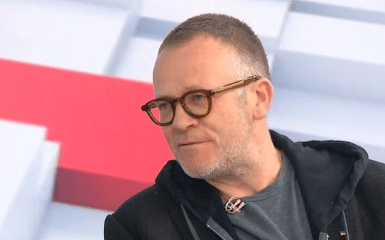British Prime Minister Keir Starmer and his allies should stop delaying the use of frozen Russian assets worth £260 billion for Ukraine, said Jason McCue, a prominent British human rights and international justice lawyer.
Points of attention
- Confiscating frozen Russian assets worth £260 billion for Ukraine requires political will and can be legally justified, according to British lawyer Jason McCue.
- Introduction of an expedited international trial could ensure due process and strengthen political will for asset confiscation, while neutralizing political risks.
- The private sector assets of the Russian military machine are vulnerable to lawsuits outside Russia and could be utilized to provide immediate financial assistance to Ukraine.
All that is needed to confiscate Russia's frozen assets is political will
According to McCue, there are no legal obstacles to confiscation - all that is needed is political will.
For years, the West has been trying to resolve the issue of confiscating €260 billion of Russian state assets that were frozen in the EU to help Ukraine. From a moral perspective, this seems like a perfectly obvious step. The challenge is to reconcile what is clearly the right decision with its legal and political consequences.

Jason McCue
British lawyer
According to him, from a legal point of view, confiscation does not contradict international law, but it needs to be justified through due process. From a political point of view, confiscation challenges the world order and also raises concerns about possible mirror measures in response.
Jason McCue notes that British leaders are striving to achieve a common goal but instead are getting lost in bureaucratic mazes. This is undoubtedly frustrating for Ukrainian President Zelensky, who has watched the indecision of the Starmer government and its allies on this issue.
It is important to call a spade a spade: this is a political issue, not a legal one. The legal Rubicon was crossed a long time ago. US law has for many years allowed the seizure of state assets if the executive branch recognizes a country as a "sponsor of terrorism." Canada also uses this practice. Why don't we do the same? This approach is effective and practical, and therefore it is worth taking as a model.
Until now, the main argument in favor of confiscation has been to emphasize its necessity: Ukraine needs these funds to survive. Without them, Europe will face even greater problems. However, a solution must be found that neutralizes the political risks.
In McCue's view, the introduction of an expedited international trial could ensure due process and strengthen political will for confiscation.
The private sector assets of the Russian military machine are vulnerable to lawsuits outside Russia, and significantly exceed the state ones (260 billion pounds): together with the frozen $50 billion, they include another approximately $500 billion in the form of foreign direct investment, loans and deposits abroad.
In such cases, it is standard practice to use potential future compensation to provide immediate financial assistance. Starmer and his allies could easily set up a fund in which allied countries holding frozen assets would provide commercial non-recourse loans to Ukraine.
According to the best models, claims worth £50 billion could attract a non-recourse loan of £35 billion, which could be directed towards Ukraine's defense.
Such an approach would not only create a more appealing narrative for domestic audiences than simply providing aid without expecting repayment, but would also guarantee creditors a secured asset that could be used as leverage to pressure Russia.


